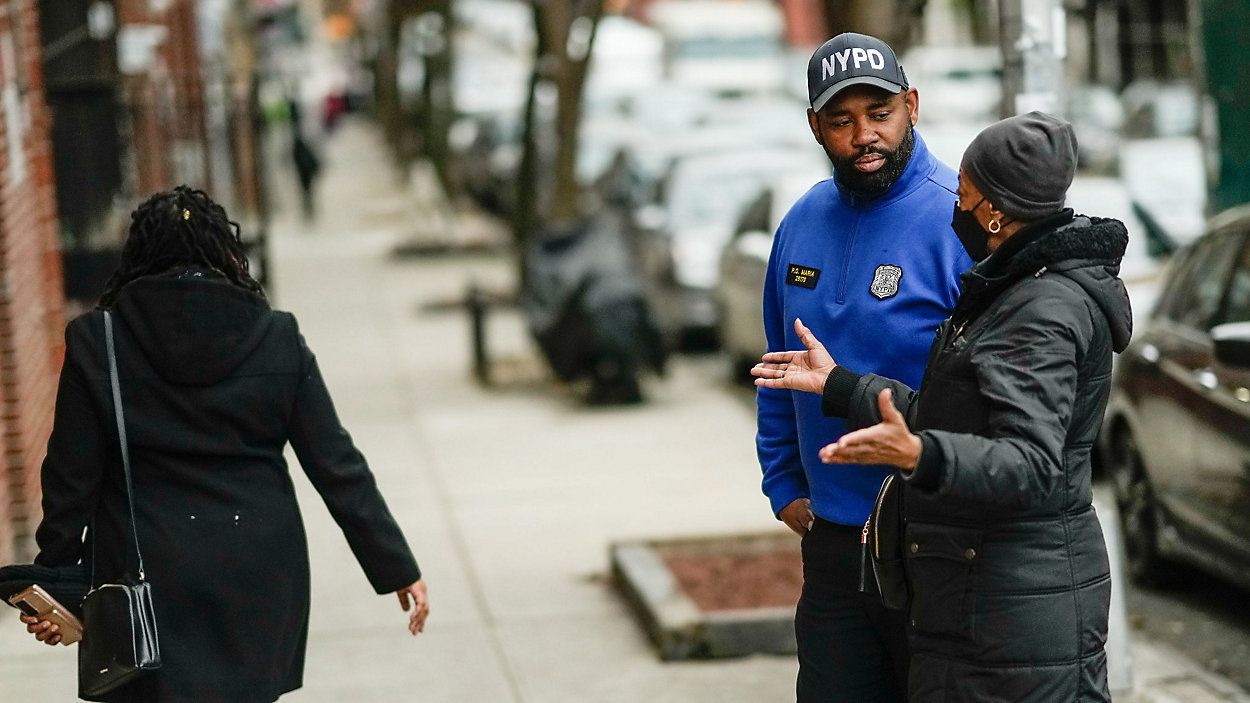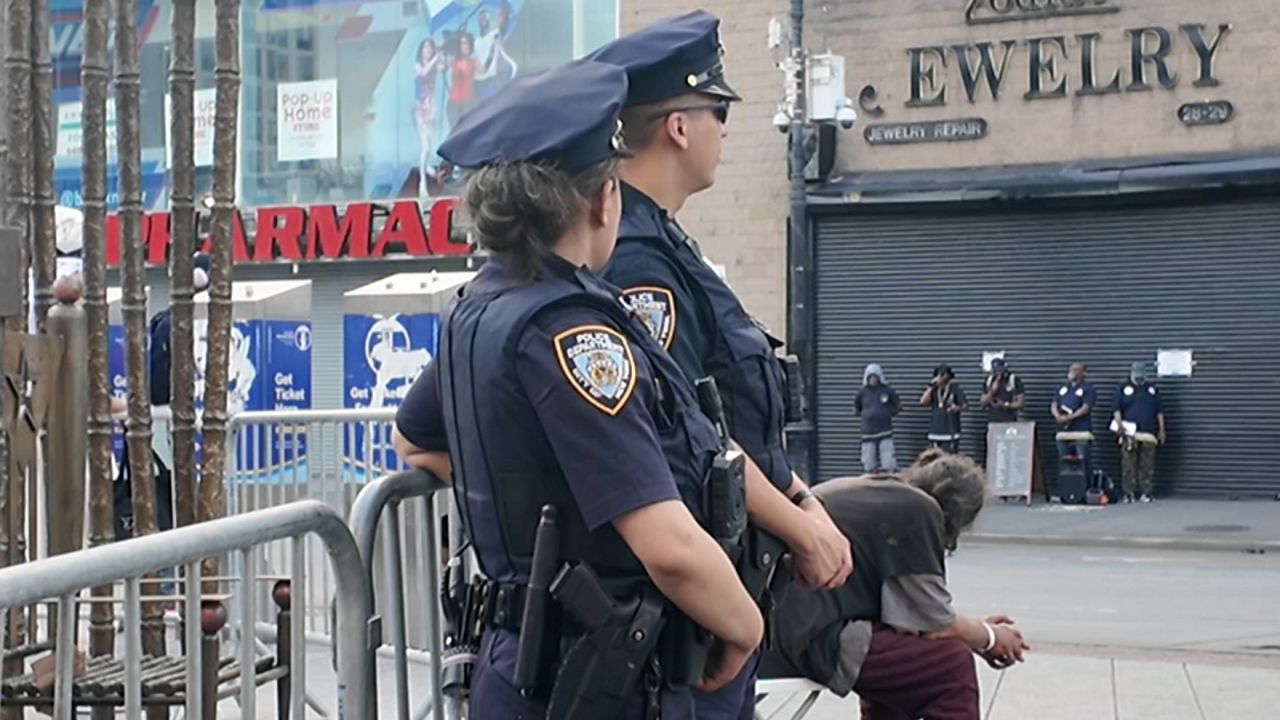The NYPD is expanding its recently launched Quality of Life Division to every precinct in the city, Mayor Eric Adams said Monday.
The policing initiative, which rolled out in five precincts and a police service area in April, aims to address non-emergency issues like noise complaints, illegal vending, outdoor drug use and abandoned vehicles.
The division will also expand to every public housing command in the five boroughs, City Hall said in a release.
“Our goal is to continue to go after those quality-of-life issues, and in the first 60 days of the pilot, it has been a resounding success,” Adams said at a press conference.
Since the pilot program launched on April 14, dedicated “Quality of Life Teams,” or “Q-Teams” — groups of officers trained to address low-level offenses — have responded to more than 7,500 quality-of-life calls, issued more than 6,100 summonses and made 357 arrests, the release said.
The Q-Teams are composed of neighborhood coordination officers, youth coordination officers and traffic safety officers who operate at the precinct level and report directly to local leadership, according to the release.
The expansion comes amid a broader push by the Adams administration to make the streets of New York feel safer.
While violent crime has dropped citywide in recent years, polls have shown that many residents still feel unsafe — a sentiment officials hope to shift through increased enforcement and responsiveness.
“In just two months, the Quality-of-Life Division has done exactly what we set out to do: respond quickly, stay focused, and address the issues New Yorkers are calling about,” NYPD Commissioner Jessica Tisch said in a statement. “Now, we’re scaling that success citywide.”
City Hall framed the announcement as a win for neighborhoods that have long felt underserved by traditional police responses.
The full citywide rollout is expected to begin in July and continue through August, the release said.






_Pkg_NYPD_Cop_NJ_Shooting_Clean_131152335_3440)
_PKG_CG_911_Air_Quality_Probe_Bill_134718004_93)
_CGPK_Mother_of_18_Year_Old_Who_Died_in_Police_Custody)

_PKG_Sunset_Park_Hit_and_Run)
_PKG_Feliz_Family_rally_)